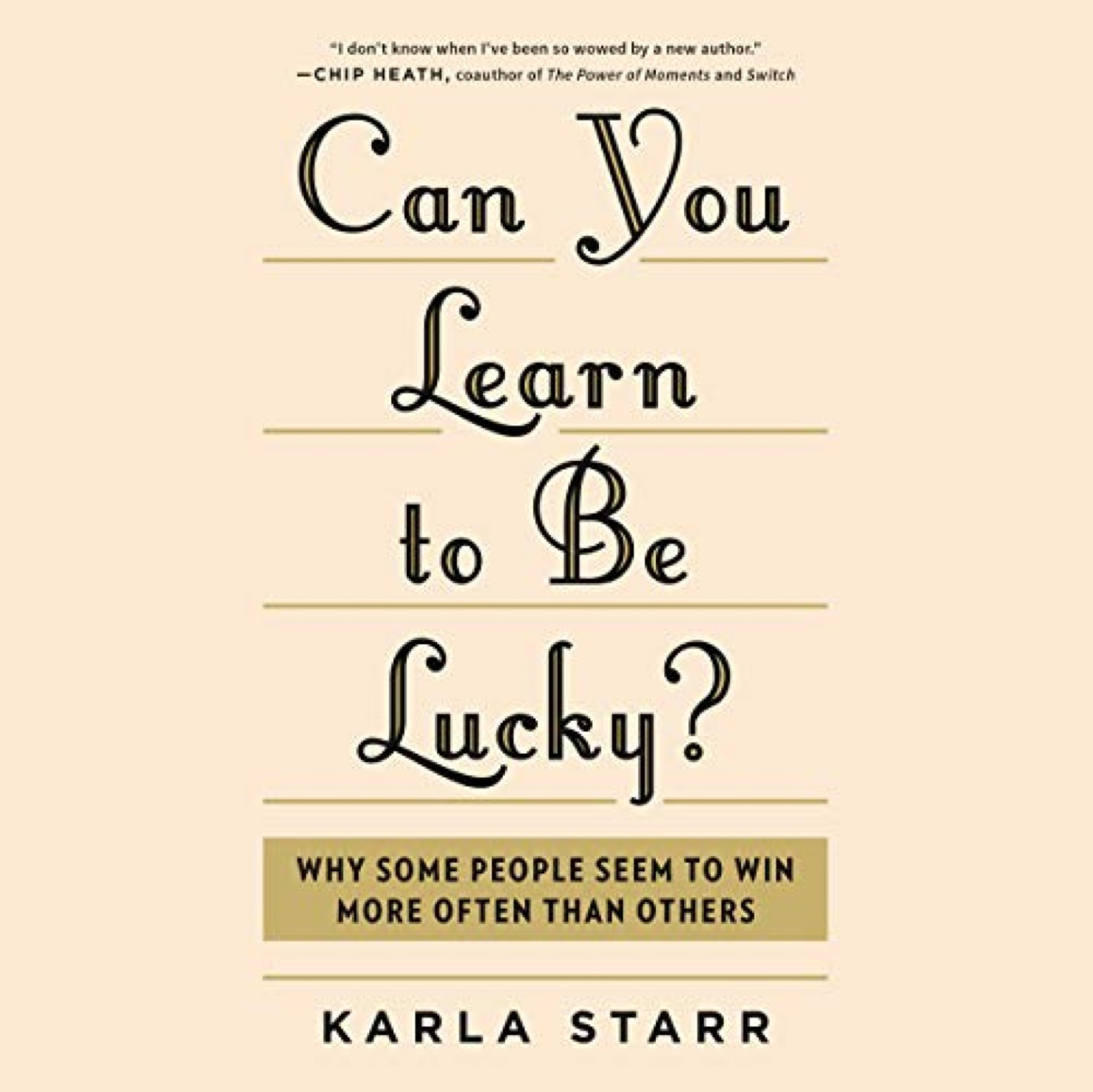
Can You Learn to Be Lucky? Why Some People Seem to Win More Often Than Others by Karla Staff explains in detail how you can increase your chances of being lucky and therefore successful. We all experience good luck and bad luck as we go through life, but with Karla’s help, we can make good luck more likely and take better advantage of it, and better survive and learn from our bad luck. This book belongs in every professional learning library.
Introduction
- This book is about navigating life’s hidden patterns. While there is no way to account for every variable influencing our situation, this doesn’t make the world entirely unpredictable. We need to see the world as understandable and manageable. If you feel unsure about your ability to handle the future, anxiety will follow. Regardless of your merit, frugality, and faith, elements of chance will always be part of your life. This is where luck comes in. A bias toward action, however, can help as doing nothing can lead to learned helplessness. You can’t stumble on to something good by sitting down.
1. Best in Show: Why Lucky Timing Is out of Our Hands
- Studies show that your chances of winning a subjectively scored event are better if you are judged near the end. They also show that prisoners get the best deals if they are judged right after lunch or a break. If you are part of a contest or are interviewing for a job, do what you can to be near the end of the process. Then do what you can to be memorable and emphasize what makes you special or unique. Frame losses as learning experiences and don’t take them personally. And if you want to score with the gender of your choice at a bar, stay until closing time.
2. The Charlie Brewer Principle: How That Warm, Fuzzy Feeling Leads to Luck
- The focus is Charlie Brewer whose father and grandfather were star quarterbacks. Is it any wonder that the coach looked to him to be his next quarterback? If you have some advantage due to your family’s circumstances be sure to leverage it. However, if you are rich and good looking you might get away with being a dick, but it’s not a good strategy in the long run. Charlie’s story deals with confirmation bias. This is a concept you need to understand on the road to luck.
- The other big idea here is availability. By consistently showing up you increase your chances to be lucky. If you are always there you will seem safe, which correlates with luck. The more people see you the more they are likely to like you as long as you are nice. Proximity counts. People who live on the bottom floor have more friends. Kids who sit in the middle of the room are more popular. Your attire is very important. For example, women who show up in a nightclub dress are not likely to be seen as highly capable. Make a good first impression and know that it takes time and effort to build a good reputation.
3. Bitches in Glasses: The Occasionally Unlucky Side of Intuition
- We use our feelings to decide and rationalize our choices after the fact. There are things we can control like grooming, attire, facial expressions, posture, what we say, tone of voice, and body language. We have some control over our body shape and size. We have little control over the shape of our face and our height, and they both count for more than they should. Be sure to act in a friendly manner and smile when you meet someone. Act like you are happy to see them. This you can control and it will help make a good first impression.
- We tend to map traits from people we know on to people we meet who look similar. The feelings we currently feel also impact our impression of the people we are with. Women who don’t smile are judged more harshly than men who don’t smile. People with square jaws and wider faces are more likely to be promoted. Life is indeed unfair. What you can do is throw your hat into the ring every chance you get, use an easy-to-pronounce version of your name, and avoid edgy jokes and weird online IDs.
DrDougGreen.com If you like the summary, buy the book





